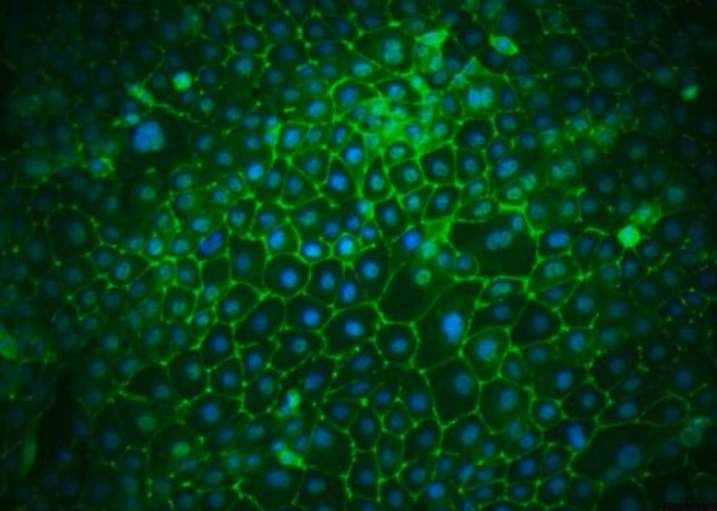
The Significance of A704 Cells in Endocrine Research
The intricate dance of hormones within our bodies dictates everything from our mood and metabolism to growth and reproduction. Understanding these complex biological processes is paramount for developing effective treatments for a myriad of endocrine disorders. While in vivo studies offer invaluable insights, the controlled environment of cell culture models provides a powerful platform for dissecting molecular mechanisms. Among the diverse array of cell lines available, A704 cells have emerged as a particularly significant tool in endocrine research, offering unique advantages for investigating renal physiology and hormone-related pathologies.
Unveiling the A704 Cell Line: A Renal Endocrine Model
A704 cells are a human renal cell carcinoma cell line, originally derived from a metastatic lesion. While their cancerous origin might initially seem counterintuitive for endocrine studies, their unique characteristics make them exceptionally valuable. These cells exhibit several features reminiscent of normal renal tubular cells, including the expression of various transporters and receptors crucial for maintaining electrolyte balance and responding to hormonal signals. This inherent functionality allows researchers to model aspects of renal endocrine function in a controlled in vitro setting, providing a bridge between isolated biochemical assays and complex in vivo systems.
For instance, they have been extensively used to study the effects of parathyroid hormone (PTH), vitamin D, and aldosterone—key players in calcium and phosphate homeostasis, and blood pressure regulation, respectively—topics often explored in online phlebotomy courses. This responsiveness makes them an ideal model for investigating the molecular pathways underlying endocrine disorders affecting the kidneys, such as hyperparathyroidism or certain forms of hypertension.
One of the primary advantages of A704 cells lies in their responsiveness to a variety of hormones and growth factors. For instance, they have been extensively used to study the effects of parathyroid hormone (PTH), vitamin D, and aldosterone – key players in calcium and phosphate homeostasis, and blood pressure regulation, respectively. This responsiveness makes them an ideal model for investigating the molecular pathways underlying endocrine disorders affecting the kidneys, such as hyperparathyroidism or certain forms of hypertension.
Applications in Unraveling Hormonal Pathways
The utility of A704 cells extends across several critical areas of endocrine research:
Investigating Mineral Metabolism Disorders
A704 cells are particularly adept at modeling aspects of mineral metabolism. Researchers utilize these cells to study the expression and regulation of various transporters involved in calcium and phosphate reabsorption and secretion. For example, studies have employed A704 cells to examine the impact of PTH on the expression of sodium-phosphate co-transporters (NaPi-IIa/c), shedding light on the mechanisms by which PTH regulates phosphate balance. Similarly, the effects of vitamin D metabolites on calcium-regulating proteins can be effectively investigated, contributing to our understanding of conditions like rickets or osteoporosis. The ability to manipulate gene expression within A704 cells further enhances their utility, allowing for precise dissection of signaling pathways involved in these processes.
Exploring Renal Hypertension Mechanisms
The kidneys play a pivotal role in blood pressure regulation, and dysregulation of renal endocrine function can lead to hypertension. A704 cells offer a valuable model for studying the cellular and molecular mechanisms underlying renal hypertension. Researchers can expose these cells to various stimuli, such as angiotensin II or aldosterone, and observe their effects on gene expression, protein synthesis, and cellular signaling pathways. This allows for the identification of potential therapeutic targets for hypertension and provides insights into the pathogenesis of conditions like primary aldosteronism.
Drug Screening and Toxicity Studies
Beyond fundamental research, A704 cells serve as a robust platform for drug screening and toxicity studies. Their well-characterized hormonal responsiveness and ease of culture make them suitable for testing the effects of novel compounds on renal endocrine function. For instance, researchers can evaluate the nephrotoxic potential of new drugs or assess the efficacy of therapeutic agents designed to modulate hormone receptor activity. This application significantly accelerates the drug discovery process and helps ensure the safety and efficacy of new pharmaceutical interventions.
See also: A Lifetime of Smiles: Your Guide to Optimal Oral Health
Comparative Advantages and Complementary Models
While A704 cells provide a powerful tool, it’s crucial to acknowledge their place within the broader landscape of cell culture models. For instance, in neuroendocrine research, cell lines like sh-sy5y cells are indispensable for studying neuronal differentiation and neurotransmitter synthesis, offering insights into conditions like Parkinson’s disease. However, for renal-specific endocrine investigations, A704 cells often offer a more physiologically relevant context.
The strength of A704 cells lies in their ability to mimic certain aspects of renal tubular function, providing a more faithful representation of the cellular environment compared to more generalized cell lines. However, researchers often employ a multi-faceted approach, combining A704 cell studies with other models, including primary renal cell cultures or even animal models, to gain a comprehensive understanding of complex endocrine phenomena. This integrated approach ensures that findings from in vitro studies are validated and contextualized within a living system.
Actionable Insights for Researchers
For researchers considering A704 cells for their endocrine studies, here are some actionable tips:
- Characterize Your Cells: Always confirm the identity and functionality of your A704 cell stock. Regular testing for mycoplasma contamination is also crucial.
- Optimize Culture Conditions: Tailor culture media and supplements to the specific experimental question. Factors like serum concentration and growth factor supplementation can significantly impact cellular responses.
- Consider Gene Editing: Leverage CRISPR-Cas9 or other gene editing technologies to create knockouts or overexpression models within A704 cells to precisely investigate gene function.
- Integrate with Other Models: Combine A704 cell data with findings from primary cell cultures, animal models, or even clinical data to strengthen your conclusions.
- Stay Updated: The field of cell biology is constantly evolving. Keep abreast of new techniques and applications for A704 cells to maximize their potential.
Conclusion
A704 cells stand as a vital and versatile tool in the arsenal of endocrine researchers. Their unique characteristics, particularly their responsiveness to various hormones and their ability to model aspects of renal tubular function, make them indispensable for unraveling the complexities of mineral metabolism, blood pressure regulation, and drug discovery. By providing a controlled and reproducible environment, A704 cells continue to facilitate groundbreaking discoveries that enhance our understanding of endocrine disorders and pave the way for novel therapeutic strategies. As research continues to advance, the significance of A704 cells in pushing the boundaries of endocrine knowledge will undoubtedly endure.




